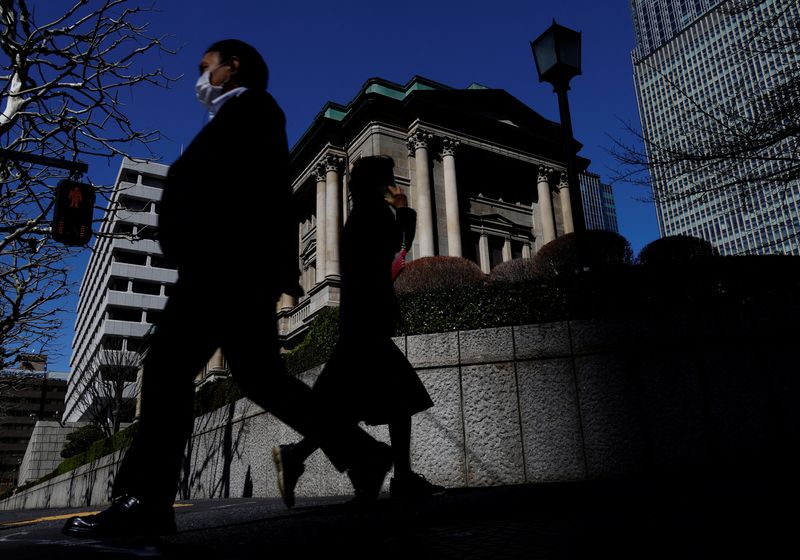Investors Respond to BOJ's Rate Decision

Bank of Japan Maintains Rates, Signals Potential Hike in December
The Bank of Japan (BOJ) maintained its short-term interest rate at 0.5% during its latest policy meeting, as expected. However, the central bank reiterated its commitment to raising borrowing costs if economic conditions align with its projections. This decision has prompted investors to speculate about a potential rate hike as early as December.
Despite keeping rates steady, the BOJ provided more details on global risks that could impact Japan’s recovery. This suggests a cautious approach towards downside risks to growth. The central bank also emphasized its long-term forecasts, maintaining a balanced stance while acknowledging the need for vigilance.
Two board members, Naoki Tamura and Hajime Takata, dissented from the decision, advocating for an increase to 0.75%. Their dissent highlights the internal debate within the BOJ regarding the timing and pace of monetary tightening.
Expert Perspectives on the BOJ's Decision
Norihiro Yamaguchi, Senior Japan Economist at Oxford Economics, noted that the key question is whether Governor Haruhiko Ueda will signal an imminent rate hike during the press conference. If Ueda believes that tariff shocks have subsided, market expectations may shift toward an early hike, which could lead to higher Japanese Government Bond (JGB) yields and a stronger yen.
Fred Neumann, Chief Asia Economist at HSBC, pointed out that the BOJ is cautiously moving toward a rate hike. With inflation remaining high and the economy performing well, the central bank is likely to raise rates eventually. However, the exact timing remains uncertain.
Hirofumi Suzuki, Chief FX Strategist at SMBC, stated that the decision seems to be based on the BOJ's own assessment rather than political pressure. He expects another rate hike in December if the central bank continues its gradual approach.
Shoki Omori, Chief Desk Strategist at Mizuho Securities, emphasized that the BOJ reaffirmed its commitment to a "gradual normalization" of policy. Market participants are now focusing on key indicators such as wage negotiations, service-sector prices, and external economic developments.
Christopher Wong, Currency Strategist at OCBC, noted that market disappointment over the lack of a hawkish tilt led to some yen bulls exiting their positions. However, he believes that the overall direction of BOJ policy normalization still points toward rate hikes.
Political Dynamics and Economic Outlook
Tohru Sasaki, Chief Strategist at Fukuoka Financial Group, mentioned that his forecast has shifted from an October hike to the next fiscal year due to the new Prime Minister Sanae Takaichi’s cautious stance. He believes the market is pricing in a 40-50% chance of a rate hike by the next meeting.
Keisuke Tsuruta, Senior Fixed Income Strategist at Mitsubishi UFJ Morgan Stanley Securities, highlighted that the presence of two dissenters eased market concerns about a sudden shift toward a hawkish stance.
Charu Chanana, Chief Investment Strategist at Saxo, noted that the central bank remains cautious, making it difficult to justify increased odds of a December hike. She added that unless Governor Ueda signals a more hawkish stance, the yen could face further pressure.
Sim Moh Siong, Currency Strategist at Bank of Singapore, pointed out that the yen is slightly weaker, partly due to the Fed’s recent hawkish stance. He emphasized the importance of Ueda’s comments in shaping future expectations.
Broader Implications and Future Outlook
Krishna Bhimavarapu, APAC Economist at State Street Investment Management, noted that the likelihood of a rate hike within the next two meetings is increasing, depending on global trade volatility. However, the BOJ is expected to proceed gradually.
Masato Koike, Senior Economist at Sompo Institute Plus, suggested that the election of Takaichi as Prime Minister influenced the BOJ’s decision to delay a rate hike. He noted that if the U.S. proceeds with rate cuts, the rationale for raising rates in Japan could diminish.
Kazutaka Maeda, Economist at Meiji Yasuda Research Institute, highlighted the challenges the BOJ faces in communicating with the new administration. He noted that while Takaichi is not opposed to a rate hike, she has not yet taken a clear stance. Recent comments from U.S. Treasury Secretary Bessent could also influence the BOJ’s decisions.
Overall, the BOJ’s decision reflects a careful balancing act between economic performance, global risks, and political dynamics. While a rate hike in December remains a possibility, the central bank is likely to proceed with caution, ensuring that any policy changes are aligned with its broader economic goals.
Post a Comment